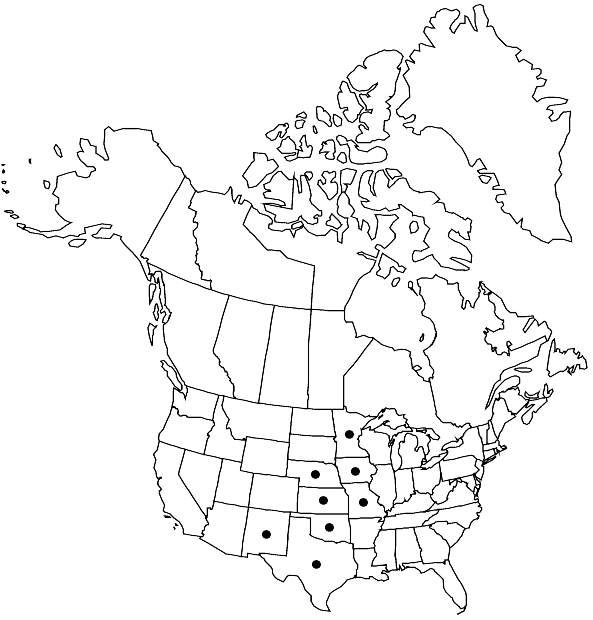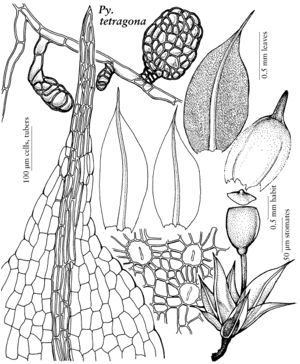Pyramidula tetragona
Muscol. Recent., suppl. 4: 20. 1818,.
Basionym: Gymnostomum tetragonum Bridel Muscol. Recent., suppl. 1: 270. 1806
Treatment appears in FNA Volume 27. Treatment on page 199.
Plants scattered to gregarious; leaves with arcuate acumen when dry, capsules hidden in large angular calyptrae.
Phenology: Capsules mature Jan–May.
Habitat: Mineral soil, grasslands, less often forests, river banks, commonly among other mosses
Elevation: mainly moderate elevations
Distribution

Iowa, Kans., Minn., Mo., Nebr., N.Mex., Okla., Tex., n, c Europe, n Africa.
Discussion
Pyramidula tetragona is easily identified by the large, four-angled calyptra that encloses virtually the entire sporophyte. The capsule that sharply contracts to the neck, which itself is abruptly narrowed to the seta, also distinguishes the species. In addition, no other species of Funariaceae produces rhizoidal tubers.
Selected References
None.
Lower Taxa
None.
